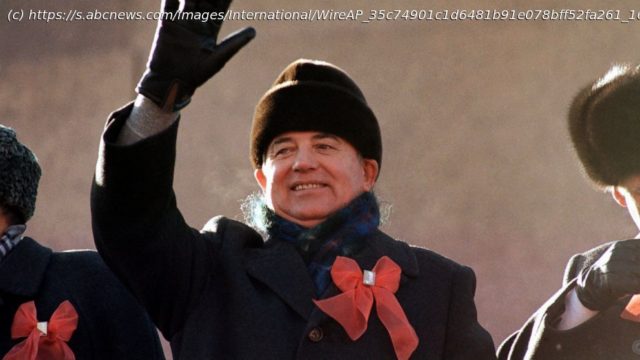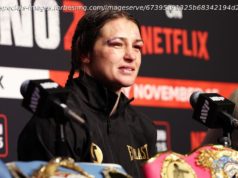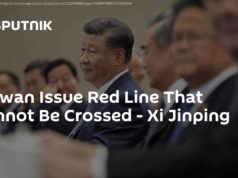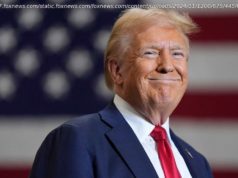Array
Before Mikhail Gorbachev came along, the Soviet Union seemed an immovable superpower in perpetual antagonism to the United States. With a breathtaking series of reforms, Gorbachev changed all that — and re-directed the course of the 20th century.
Alongside Ronald Reagan and Margaret Thatcher, Gorbachev was a key protagonist in a global drama that many thought impossible and, for those who lived through it, seemed almost surreal.
Under Gorbachev, the Berlin Wall crumbled, thousands of political prisoners were released and millions of people who had known only communism got their first real taste of freedom. But he was unable to control the forces he unleashed — and ultimately waged a losing battle to salvage a crumbling empire.
Gorbachev died Tuesday at a Moscow hospital at 91.
Although little known outside Sovietologist circles before he became leader in 1985, he quickly became a dominant and charismatic figure on the world stage. The splotchy purple birthmark on his bald pate made him instantly recognizable, and his vigor stood in sharp contrast to the recent run of aged and barely articulate Kremlin leaders.
His vision of remaking the Soviet Union into a more humane and flexible country had the power of the epochal. By 1990, he had won the Nobel Prize for his “leading role” in ending the Cold War and reducing nuclear tensions.
But a mere year later, he was the sad and bewildered embodiment of failure. The country had fallen apart in his hands, and at home he was derided, despised and increasingly shunted aside as irrelevant.
His power hopelessly sapped by an attempted coup against him in August 1991, Gorbachev spent his last months in office watching republic after republic declare independence until he resigned on Dec. 25, 1991, and the Soviet Union wrote itself into oblivion a day later.
Many of the changes, including the Soviet breakup, bore no resemblance to the transformation that Gorbachev had envisioned when he became the Soviet leader in March 1985.
By the end of his rule, he was powerless to halt the whirlwind he had sown. Yet Gorbachev may have had a greater impact on the second half of the 20th century than any other political figure.
“I see myself as a man who started the reforms that were necessary for the country and for Europe and the world,” Gorbachev told The Associated Press in a 1992 interview shortly after he left office.
“I am often asked, would I have started it all again if I had to repeat it? Yes, indeed. And with more persistence and determination,” he said.
Russians blamed him for the 1991 implosion of the Soviet Union — a once-fearsome superpower whose territory fractured into 15 separate nations.
His run for president in 1996 was a national joke, and he polled less than 1 percent of the vote. In 1997, he resorted to making a TV ad for Pizza Hut to earn money for his charitable foundation.
His former allies deserted him and made him a scapegoat for the country’s troubles.
“In the ad, he should take a pizza, divide it into 15 slices like he divided up our country, and then show how to put it back together again,” quipped Anatoly Lukyanov, a one-time Gorbachev supporter.
Gorbachev never set out to dismantle the Soviet system. He wanted to improve it.
Soon after taking power, he began a campaign to end his country’s economic and political stagnation, using “glasnost,” or openness, to help achieve his goal of “perestroika,” or restructuring.
In his memoirs, he said he had long been frustrated that in a country with immense natural resources, tens of millions were living in poverty.
“Our society was stifled in the grip of a bureaucratic command system,” Gorbachev wrote. “Doomed to serve ideology and bear the heavy burden of the arms race, it was strained to the utmost.”
Once he began, one move led to another: He freed political prisoners, allowed open debate and multi-candidate elections, gave his countrymen freedom to travel, halted religious oppression, reduced nuclear arsenals, established closer ties with the West and did not resist the fall of communist regimes in Eastern European satellite states.
But the forces he unleashed quickly escaped his control.






